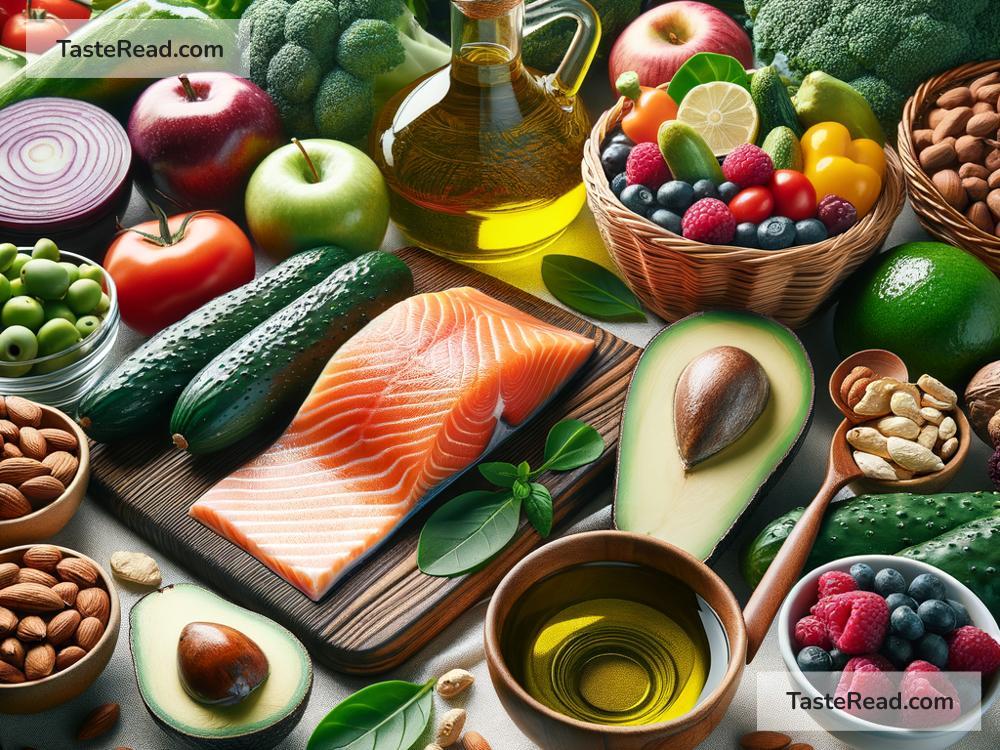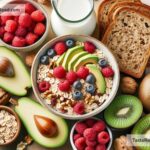Foods That Reduce Risk of Coronary Artery Disease
Coronary artery disease (CAD) is a serious condition that affects the heart. It occurs when the blood vessels that supply oxygen and nutrients to the heart become narrowed or blocked due to a buildup of fatty deposits called plaque. This reduces blood flow to the heart, increasing the risk of heart attacks and other heart problems. The good news is that your diet can play a huge role in keeping your heart healthy and lowering your risk of CAD. By choosing the right foods, you can support your heart and maintain good overall health.
Here are some foods that can help reduce the risk of coronary artery disease:
1. Oily Fish
Fish like salmon, mackerel, sardines, and tuna are excellent sources of omega-3 fatty acids. Omega-3s are healthy fats that help reduce inflammation and lower harmful cholesterol levels in your bloodstream. They also improve blood vessel function and reduce the risk of clots forming in your arteries. Eating oily fish twice a week is a heart-smart choice.
2. Whole Grains
Whole grains like brown rice, quinoa, whole wheat bread, and oats are packed with fiber, which helps lower bad cholesterol (LDL). Unlike refined grains, whole grains retain their nutrient-rich layers, providing vitamins and minerals that are essential for heart health. Fiber also helps regulate blood sugar and keeps your digestive system healthy.
3. Leafy Greens
Spinach, kale, collard greens, and other dark leafy vegetables are rich in vitamins, minerals, and antioxidants. They contain potassium, which helps maintain healthy blood pressure levels, and nitrates, which improve blood flow. Leafy greens are also low in calories, making them great for maintaining a healthy weight to reduce heart disease risk.
4. Berries
Strawberries, blueberries, raspberries, and blackberries are not only delicious but also loaded with antioxidants called flavonoids. These compounds help protect your heart by reducing damage to your cells and lowering inflammation. Berries are also a good source of fiber, which helps manage cholesterol levels.
5. Nuts and Seeds
Walnuts, almonds, chia seeds, and flaxseeds are packed with healthy fats, protein, and fiber. Nuts like walnuts are particularly high in omega-3 fatty acids and plant sterols that help lower cholesterol and reduce plaque buildup in arteries. Just make sure to eat them in moderation, as they are calorie-dense.
6. Avocados
Avocados are a great source of monounsaturated fats, which are the “good” fats that help lower bad cholesterol (LDL) and promote good cholesterol (HDL). They’re also rich in potassium, which helps keep blood pressure in check. Spread avocado on toast or add it to salads for a heart-healthy boost.
7. Olive Oil
Olive oil, especially extra virgin olive oil, is another great source of monounsaturated fats. It reduces inflammation and supports healthy cholesterol levels. Olive oil is a key staple of the Mediterranean diet, which has been proven to lower the risk of heart disease. Use it as a dressing or to cook your meals.
8. Legumes
Beans, lentils, and chickpeas are packed with protein, fiber, and complex carbohydrates. These foods help keep cholesterol levels in check and improve heart health while keeping you full for longer. Legumes are also low in fat, making them a great choice for a balanced diet.
9. Dark Chocolate
Yes, chocolate can be good for your heart—if you choose dark chocolate with at least 70% cocoa content. Dark chocolate contains antioxidants like flavonoids, which help lower blood pressure and promote healthy blood flow. But moderation is key; too much chocolate can lead to extra calories and sugar intake.
10. Garlic
Garlic has compounds like allicin that may help reduce cholesterol and blood pressure levels. Adding garlic to your meals not only enhances flavor but also provides heart-protective benefits.
11. Green Tea
Green tea is rich in antioxidants called catechins that help reduce inflammation and improve the health of your blood vessels. Drinking a cup or two of green tea daily can be a simple yet effective way to support your heart.
12. Low-fat Dairy
Dairy products like yogurt and milk can be part of a heart-healthy diet when consumed in their low-fat or non-fat versions. These products provide calcium and potassium, which are important for maintaining healthy blood pressure levels.
Small Changes, Big Benefits
Eating heart-healthy foods doesn’t mean giving up all your favorite treats or drastically changing your lifestyle overnight. Start by incorporating one or two of these foods into your meals each day. For example, have oatmeal with berries for breakfast, a salad with leafy greens and avocado for lunch, and grilled salmon for dinner. Gradually, these choices will become habits that support your heart in the long run.
A Balanced Approach
Remember, it’s not just about eating specific foods—it’s about creating an overall balanced and healthy diet. Limit processed and fried foods, cut back on sugary drinks, and avoid excess salt and trans fats, as these can increase your risk of CAD. Drink plenty of water, get regular exercise, and manage stress to further protect your heart.
By making mindful food choices, you’re taking a powerful step to reduce your risk of coronary artery disease and live a healthier, happier life. Eating well isn’t just good for your heart; it’s good for your entire body!


